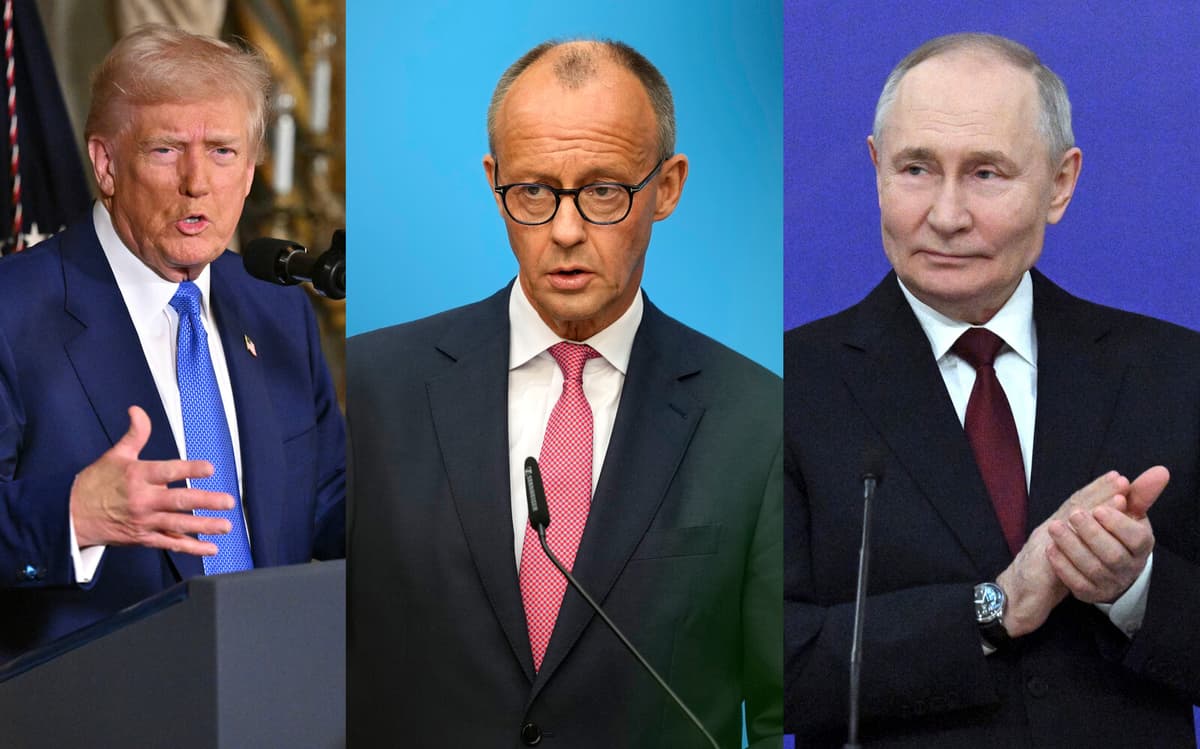Can Europe's NATO countries rely on the US, under President Trump, coming to their rescue in the event of a Russian attack? Friedrich Merz, the Christian Democrat who is likely to become Germany's next Chancellor, would not bet his life savings on it, he admitted in a German TV interview on Friday.
I wouldn't put all my money on it, especially not on that.
"The governments in the EU's capitals, and also in Kyiv, have been forced to realize that the US is no longer a guarantee for security," writes Süddeutsche Zeitung.
Now, Europe is looking expectantly at Germany, which, as the EU's most populous country and largest economy, will likely have to shoulder a large part of the dramatic build-up that many analysts believe is necessary.
"Has the prerequisites"
Ann-Kristin Kölln, professor of political science at the University of Gothenburg, says that a great responsibility now falls on the German parties to create a sustainable government.
Germany has the prerequisites to take on a new, leading role in the new security policy order. But it requires that we get stable political conditions after the election, she says.
To establish a credible deterrent against Russia, annual defense investments of around 250 billion euros are required - in addition to the current budget, according to a report from the Brussels-based think tank Bruegel and the Kiel Institute (IFW). The amount is much higher than the EU Commission's official estimate.
No to EU loans
Where the money will come from is unclear, and Merz, like the current German government (and Sweden), has consistently said no to joint EU loans to quickly raise capital.
The German debt brake, which has long been a contentious issue, could be a key. But above all, there is talk of more coordination among European NATO countries regarding the production and procurement of weapon systems.
Merz has also opened up to sending the Taurus robot system to Ukraine.
"It's about something bigger"
Now, however, it's not just about Taurus, but about something much bigger. It's nothing less than Europe's future that's at stake, says Ann-Kristin Kölln.
Despite the serious situation, there is a kind of drowsiness, she thinks.
One has known for months that something like this would come, but despite that, it doesn't seem like one has prepared oneself. My impression is that Berlin is in a state of shock.
Just over 59 million of Germany's 83 million inhabitants are eligible to vote in the election to the German parliament, the Bundestag. Each voter has two votes: a first vote (Erststimme) and a second vote (Zweitstimme).
The first vote is cast for a candidate in one of Germany's 299 constituencies, which usually sends a representative to the Bundestag. This election is a so-called majority vote in single-member constituencies, which means that only one person per constituency - the one who receives the most votes - is sent to Berlin on a direct mandate.
The second vote is cast for a party, specifically on a list drawn up by the parties at the state level. This election is proportional, and also determines how many seats in the Bundestag a party gets in total.
Previously, a system with so-called additional and compensatory mandates also applied, which was intended to ensure that all constituencies were represented with direct candidates and that the parties were proportionally represented in relation to the election result (second votes). The system caused the Bundestag to grow year by year and has now been abolished.
From the next legislative period, the Bundestag will therefore have 630 seats, instead of a varying (and constantly growing) number.
Here is the opinion poll ahead of the German federal election:
CDU/CSU (Christian Democratic): 29.5 percent
SPD (Social Democratic): 15 percent
The Greens (Green Party): 12.5 percent
FDP (Liberal): 4.5 percent
The Left (Left Party): 7.5 percent
AFD (right-wing nationalist, populist): 21 percent
BSW (left-conservative, populist): 5 percent
Others: 5 percent
Source: Insa (February 22)






